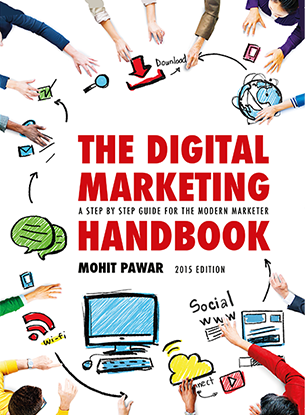A coaching client’s friend who is stuck with a big writing project reached out for help.
That project is super important for her professional growth.
She is someone who does not not like writing and reading much and has been at it for a year, and still not able to finish it.
Her project involves a ton of research and subject matter expertise.
So, it’s not like it is easy. There is some real reason she is stuck.
Even with all this, I told her that it is not a dead-end situation because there have been a large number of people in the past who have done what she wants to do.
Where people get stuck with long form writing
Here are the common reasons why people are not able to move forward with long form writing projects, like a thesis, a book or a whitepaper.
- There are overwhelmed by the scale of the project and it demotivates them
- They start but don’t do it one go, instead they try to do it over weekends or on select days of the week, because of this they never build momentum and whenever they start writing, they have to refresh their memory to where they were.
- They start from scratch for each writing session.
- They combine research and writing.
- The combine writing and editing.
- They do not define scope and do not do a logic based forecast about how much time it will take them to complete based on how much it actually took them to work through a unit.
- They try to do it all by themselves.
- They are suffering from perfection syndrome and want to make it a masterpiece.
- They do not have a reference point.
The solution to this problem of getting stuck is there in the points above.
If it is not obvious, to make it easy I’ll lay it out for you.
How to move forward with complex long form writing projects
First figure out where and why you are stuck, and then solve for it 🙂
| Challenge | Solution |
| There are overwhelmed by the scale of the project and it demotivates them | Break down your project in units so small that it will no longer overwhelm you. |
| They start but don’t do it one go, instead they try to do it over weekends or on select days of the week, because of this they never build momentum and whenever they start writing, they have to refresh their memory to where they were. | For projects that overwhelm you, schedule long stretches of focused time, so that you don’t have to get in and get out of it often. Then only you will build flow and momentum. And, both will help you get through a complex writing project. |
| They start from scratch for each writing session. | Never start writing without a deadline outline, even if 15-20% of your writing time goes into creating an outline. |
| They combine research and writing. | Do both at separate times. It is natural to want to research while you are writing a piece and you want to add insights to it. Just note it down and come back to it later. |
| The combine writing and editing. | Both need different kinds of focus. One (writing) needs you to be in flow, editing wants you to be alert and critical (with a hawk-eye) to see what can be improved. Don’t try to be both at the same time. |
| They do not define scope and do not do a logic based forecast about how much time it will take them to complete based on how much it actually took them to work through a unit. | Limit the number of sources and reference books in the beginning. Track your time as you tackle the first 5-10% of the project and then project total time it will take you to finish. Or you can calculate the time you have until the deadline and then break what you need to write across those hours. |
| They try to do it all by themselves. | Always get help, someone who has done it before or has helped others do it. |
| They are suffering from perfection syndrome and want to make it a masterpiece. | Get done with the shitty first draft and then improve it during edits. |
| They do not have a reference point. | Start with examples of what you want your writing to be like. Try to find the best on your chosen topic, so that you have context and a reference point. |
The idea I have listed under solution should help you.
In addition to these, schedule time and place in your calendar to write. Don’t go more than one day without writing and manage your writing as a well thought project.
If you don’t like writing, try recording audio and get it transcribed with a service like Rev or Otter. It will give you a base to write and edit if you don’t like writing.
If you need references and need to read then get a service to read papers and books for you and take notes to include in your writing.
Hope this helps.
And, check out how I finished two book-length projects. One in a month, and another in less than 24 hours.


